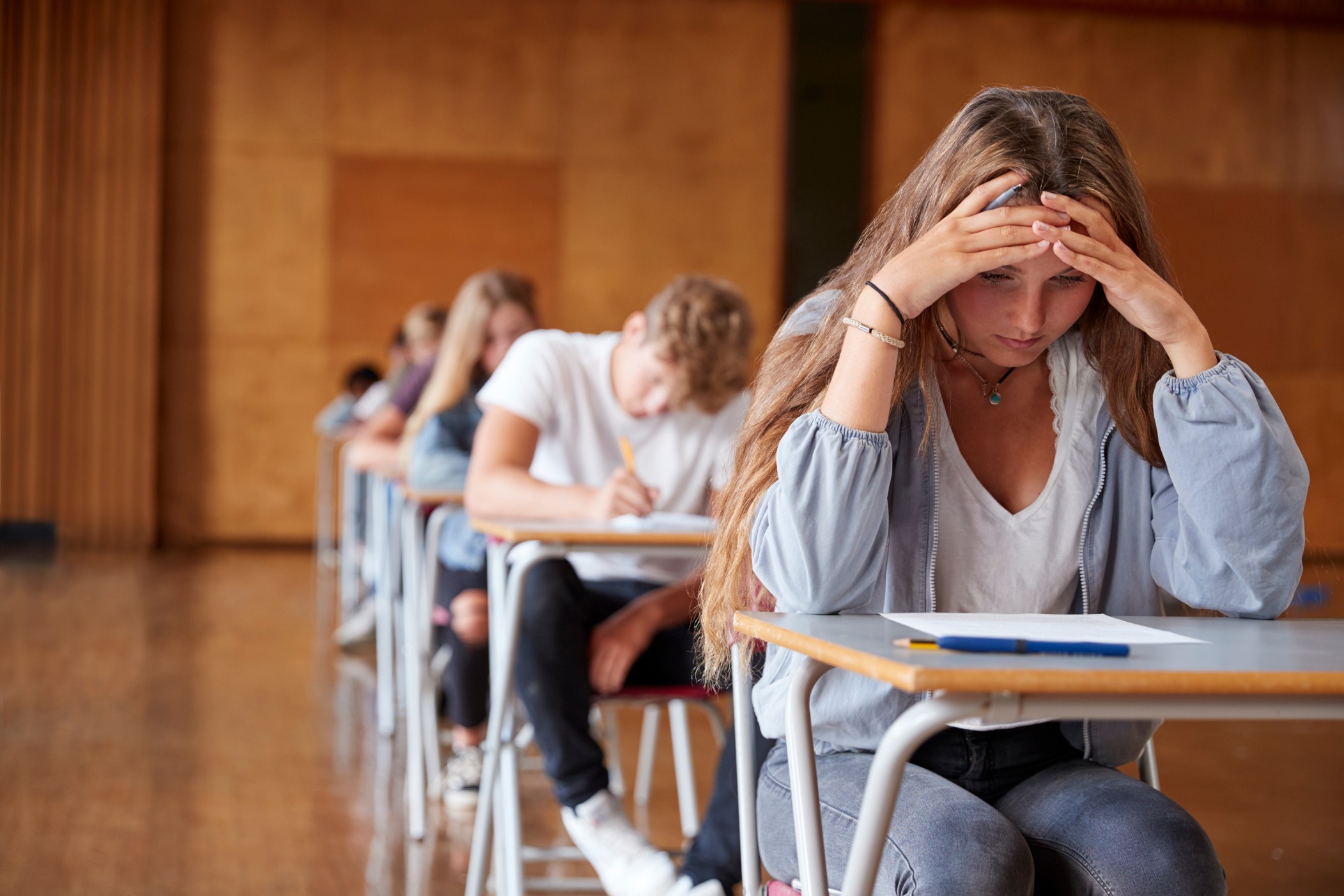The mental health of students in the United States is in an alarming condition, according to two new authoritative reports. They paint a striking picture of a teenage mental health situation that is becoming considerably worse.
Among the most disturbing aspect of the reports is that girls are reporting sharply higher incidents of suicidal thoughts and experiences of violence than boys. The decline in mental health is leading to sharp declines in academic scores as well.
The first report is from the Centers for Disease Control and Prevention. It finds that thoughts of suicide and poor mental health are at high levels among female American high school students.
In 2021 two out of every 10 U.S. high school students seriously thought about attempting suicide. Almost a third—one in every three—of female students were more likely than their male counterparts to consider a plan of suicide, be hurt in a suicide attempt, or consider suicide, the report shows.
The report also finds that an alarmingly high rate of U.S. students—four in every 10— reported that they were unable to perform their usual activities for at least two weeks as a result of nearly daily feelings of hopelessness or sadness.
The overall figure for incidents, which is up by a third from 2011, is higher for female students—60%—compared with an increase of about a half of that—29%—for male students.
The report covers the year 2021 and is among the first to capture the challenges and disruptions faced by high-school students since the start of the COVID-19 pandemic.
Becoming Worse
The other just-released report is from ECINS, a provider of online management systems for schools. It covers the 2023 school year and indicates that the condition described in the report by the Centers for Disease Control and Prevention is becoming worse. So much so that the rapidly declining teenage mental health situation, which will have a strong impact on school performance, will have far-reaching results unless action is taken soon, the report warns.
The report uses input from teachers, social workers, counselors, and administrators who work on the front line with students to empower, enable, and inspire their success.
The survey found a strong link between the declining mental health of the students and a broad drop in reading and mathematics test scores.
Deeply Concerning
The findings in the survey are deeply worrying and highlight the necessity of pressing needs for effective answers to address the alarming trends in the mental health of students, says Gary Pettengell, CEO and co-founder of ECINS.
The survey uncovers vital insights into the challenges that are facing education professionals, he says.
It also identifies practical answers to support the successful recovery of students.
The time is here for a concerted approach to assist schools to provide the support that students need in these times of challenge, Pettengell says.
Technology as a Solution
On the one hand, the report showed that students are often prepared to share their battles with an adult whom they trust. On the other hand, however, the report says that most school staff feel that they are ill equipped to meet the complex needs of the students.
The authors of the report suggest that technology is a potential solution. Students could be connected with resources that support their development and growth.
One respondent summed up that view with the comment that interactive technology is available that can help social workers at schools to support more students.
A process of collaboration that is effective and proven can help to improve outcomes, according to the ECINS report’s findings. Such a process would let teachers or other staff refer their students quickly to services that are appropriate for them, thereby ensuring that they receive support.
In addition, solutions using technology can track students’ progress, enable schools to understand the student’ needs in a better way, and provide valuable information on the impact that intervention strategies are having.






